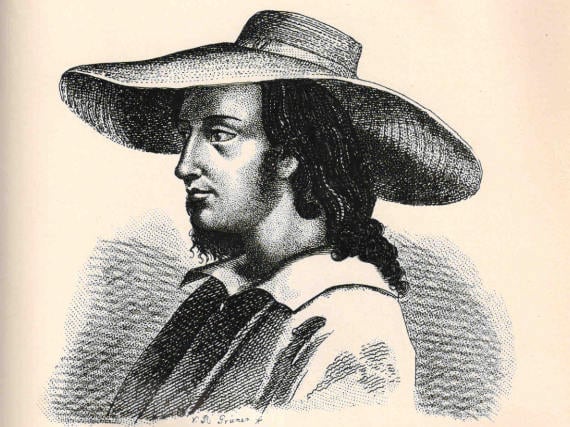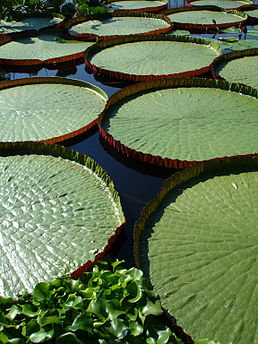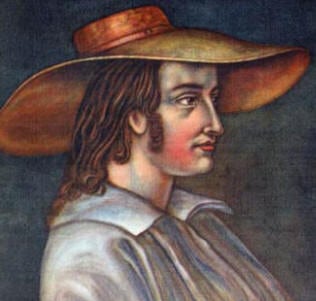nedávno byl tuším o něm článek na Tiscali 
Forgotten World Natives from Bohemia - Tadeáš Haenke
Categories: Personalities
On 5 December 1761, the former world scientist Thaddeus Haenke (full name Thaddäus Peregrinus Xaverius Haenke) was born in Chřibská, North Bohemia. Later he received a number of other surnames - e.g. Czech Humboldt for his immense scientific and discovery contribution as a world-class botanist, or Don Tadeo or also Tata Heanke from the South American Indians who recognized him as a philanthropist, physician and bread winner. He had many distinguished scientific friends, was widely read, respected... He was as important a figure in his time as today's sports celebrities and most popular elites. In his time, the powers of Europe vied for his services. And yet, to this day, little is known about him...

Although the son of a tax collector, Thaddeus Haenke came from poor circumstances. He was born into a large family that had no money to spare. From childhood he showed himself to be a very bright and perceptive boy. His teachers soon recognized in him an extraordinary talent for the study of science and also for music and singing. Although the family could not afford to pay for his studies, thanks to the generous support of the professors and other patrons, the talented Tadeáš was able to study. He became a doctor and a botanist, studying in Prague and Vienna. Haenke was an all-round gifted researcher and so with his natural diligence and honesty he mastered the technical fields of geology, physics and chemistry.
While still a student, Tadeáš Haenke undertook many expeditions in Bohemia and Europe, and was closely involved in natural history and botany. He explored the areas of the Berounka River, the Krkonoše Mountains, the forests and rocky valleys of Bohemian Switzerland and other interesting corners of the then not yet well explored Bohemia. In 1788 he visited, explored and described the flora of the Tyrolean Alps. Already then, he had already entered the consciousness of the best European botanists and naturalists. He also came to the attention of the most important monarchs...
At that time, European powers were no longer conquering the world by force, but by science. Newspapers and periodicals all over the world wrote about researches, new findings and exciting discoveries with the same excitement and suspense as, for example, the European newspapers. ...with the same excitement and excitement as today's space travel. Experts and the general public were constantly fascinated by new findings and discoveries. And just then, a wonderful offer came to Chřibská to take part in an exciting discovery and the largest - until then unprecedented expedition on the ship of the Spanish King Charles IV.
Tadeáš accepted. With the blessing of the Austrian Emperor Joseph II, he became a member of the research team under the command of Captain Alejandro Malaspina. Although he missed the embarkation and had to prosecute the ship halfway around the world, shipwrecked and crossing South America overland from the highto the west coast, after a lucky reunion in 1890, he was finally on the ship and able to join the expedition. Together they then sailed and charted a number of countries, islands and hitherto unknown places. During the four years of the voyage they visited Australia, on whose soil Thaddeus stood as the first Czech, as well as Alaska, New Guinea, the Philippines, and many other countries. It is no exaggeration to say that the expedition under Malaspina's command "discovered" a hitherto unknown world.
Despite all his achievements, Alejandro Malaspin became a thorn in the side of the Spanish authorities because of his outspoken nature and his warnings about the unsustainable state of the Spanish colonies, and was imprisoned on his return as a "traitor". All the information found, hundreds of boxes of material, notes, discoveries, artefacts, specimens, findings... All this was sealed and stored in an unknown location. After five years of the expedition, all to no avail... It wasn't until 200 years later that the information about the discoveries Haenke and others had made during the expedition came to light. Had it not been for this, Haenke would have claimed many firsts. Most of them went to the now much better known Alexander von Humboldt.
Thaddeus Haenke did not return to Spain with his captain at that time. He stayed in Cochabamba, Bolivia, where he set up his own homestead - a base for expeditions into the far reaches of the countryside. And he stayed there until he died. In addition to his expeditions of discovery to distant Peru, he also taught the natives to read and write, studied the local flora and fauna, and applied his findings as a physician and as a botanist-scientist. He constantly sent information to the old continent. At the same time, he maintained close contacts with the European scientific elite. All the while being paid handsomely as an employee of the Spanish royalty.

Victoria Royal
Thaddeus was very active. He climbed several high mountains, visited the rainforests, and spent several years studying the Yuracaré and Chiriguano Indian tribes, whose language he learned to perfection. He studied, he researched, he practiced. He sent boxes of South American natural history specimens and rare Indian artifacts to Europe. He made medicines, had Indians vaccinated (the first on the American continent against smallpox). He built a dye works, a glass factory, a gunpowder factory. He put people to work, made a solid living. He was respected and loved by the locals. He earned names like Don Tadeo and Tata Haenke. And it was probably then that he displeased the Spanish crown.
Tadeas Haenke was an opponent of autocratic power, tyranny and the malice of the governors. Apparently he helped local rebels in the production and supply of gunpowder, certainly a very strategic raw material. Perhaps that's why he should have been tried and imprisoned. However, due to his then fragile health, he was released. Soon, however, he died suddenly at the age of 55 on a farm in Cochabamba. Allegedly by misadministration of medication. But he may have been poisoned. The speculation surrounding his death continues to this day.
Tadeáš Haenke, born in Chřibská, Czech German, citizen of the Austrian monarchy, explorer, scientist, physician and world traveler. He was, and still is, the most enigmatic and still "undiscovered" scientist, who slept with more than 240 new species of plants that still bear his name. But he is "unknown" only in his native country. The Czechs know very little about him, practically not at all. However, he is known throughout the world for his unique discoveries and his enormous contribution to botany, natural history and geographical, cartographic and travel knowledge. In Bolivia, he is still known by practically everyone. In Cochabamba, the widest classroom is named after him. The world nicknames him "the Czech Humboldt". And maybe it's time for our primary school children to learn about him...
Sources.
You can search for artefacts from this period using our metal detectors.
Videos:
Seventy-two names of Czech history
Health Roman - GM4PRO

The article is included in categories:
Post
http://zpravy.tiscali.cz/zapomenuty-lovec-lekninu-a-prvni-cesky-rodak-na-aljasce-271407
Ten clanek jsem mel prakticky rozepsanej rok. Uz nejak loni jsem chtel delat serial o zapomenutych vyznamnych osobnostech - predevsim rodacich ze Sudet, vit clanek www.lovecpokladu.cz/home/zapomenuti-rodaci-ze-sudet-karl-wenzel-ernst-6588 . Ale nebyl cas. Nakonec jsem postupne z clanku vyredukoval minimalne polovinu dalsich nasbiranych zajimavosti, ty ale neslo overit, tak jsem je vyhazel. Clanek na Tiscali neznam. Podobnych je ale mraky, mnohdy s vice smyslenkami a neoverenymi domnenkami, nez tech pravdivych.
Pardon, myslel jsem především tento článek www.lovecpokladu.cz/home/spolecna-historie-aneb-nasi-zapomenuti-rodaci-ze-sudet-6473
Ok 
moc zajímavé a dost poučné po celém dni stráveném pracovním nasazením úleva moc pěkně se to čte jen pokračuj at si v padesátipěti rozšířím obzory 
Objevil naleziště zlata.Což je vždy začátek konce.To v těch videích nikdo nezmínil. 
To je jedna z těch informací, které jsem záměrně vypustil pro "nedostatek důkazů". Hodil bys zdroj té Tvé informace?
Ano, ale zabere to nějaký čas.Musím projít knihovnu.Bylo to někde na severu Bolívie v oblasti Mojos při zkoumání říční sítě.Výtěžnost však nebyla velká, si vzpomínám. 
Jasně, tak on se zajímal o krajinu a nerostné suroviny v ní vcelku běžně. Spíše jsem myslel nějaký zdroj pro domněnku, že díky objevenému zlatu mohl být třeba i zprovozen ze světa. Setkal jsem se s tím taky, ale myslím, že to není příliš pravděpoodobné. Spíše šlo o problém nadržování domorodcům proti vůli Španělska.
Hele... A nebyl ten Haenke spis Jara Cimrman? Vse na nej sedi, co pises...:)
super článek, ale není překlep v těch datech:
1/V roce 1788 navštívil, prozkoumal a popsal flóru tyrolských Alp.
2/ Ačkoli nestihl nalodění a musel loď stíhat přes půl světa, ztroskotat a přejít kvůli tomu jižní Ameriku po souši od východních břehů k západním, po šťastném shledání v roce 1890 byl konečně na lodi a mohl se připojit k výpravě.
Než by se dostal do světa a začal vzdělávat indiány bylo by mu 102 let ...
Nebo jsem něco špatně pochopil ?



Sosal: Jasně, že 1890 je překlep  Stane se. Ale přesto se mýlíš, neboť by mu nebylo 102 let, ale 129 let ;)
Stane se. Ale přesto se mýlíš, neboť by mu nebylo 102 let, ale 129 let ;)
Yoki: Právě že Jára Cimrman Haenkeho považoval za svůj velký vzor 
Pěkný počtení, jen tak dál Romane 















